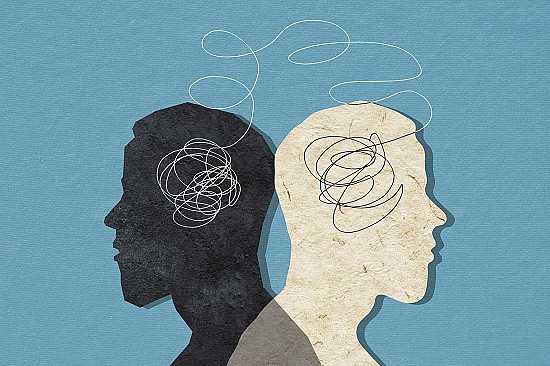Chronic pain and childhood trauma

Recently a journalist colleague of mine put out a call for quotes from those who suffer from severe premenstrual syndrome and premenstrual dysmorphic disorder (more commonly known as PMS and PMDD, respectively) who also suffered a history of childhood abuse. Her interest was piqued by a 2014 peer reviewed article that appeared in the Journal of Women's Health linking the disorders with early onset abuse. I answered the call, having both PMS and PMDD, as well as a history of child abuse by both my stepfather and my mother.
Yet despite having both a history of abuse and several diagnoses that contribute to chronic pain, it's only been in the past few years that I've become aware of the connection between the two. It wasn't until I started writing a collection of personal essays about my youth, and researching scientific literature about childhoods like mine, that I stumbled upon the now-famous 1998 ACE study, which explored "adverse childhood experiences." Specifically, the study surveyed 17,000 middle-income adults who had health data stretching back to their early childhoods. The ACE research indicated that the more adversities an individual experienced as a child — whether poverty, parental death or incarceration, neighborhood violence, or abuse — the more likely that person would suffer from serious physiological disorders as an adult.
Understanding the connection
While the causality between childhood adversity and adult chronic illness has yet to be fully determined, researchers now have enough knowledge about the way chronic stress impacts physiological health to make some educated guesses about their potential link. When we are threatened, our bodies have what is called a stress response, which prepares our bodies to fight or flee. However, when this response remains highly activated in a child for an extended period of time without the calming influence of a supportive parent or adult figure, toxic stress occurs and can damage crucial neural connections in the developing brain. According to Harvard's Center on the Developing Child, the impacts of experiencing repeated incidents of toxic stress as a child "...persist far into adulthood, and lead to lifelong impairments in both physical and mental health."
Why addressing pain and trauma should go hand in hand
The fact that childhood adversity is so intimately intertwined with adult illness does not mean that those physiological diseases experienced by adults who had traumatic childhoods are not real or valid, or that their causes are "psychosomatic." The biological impacts of childhood adversity are not only genuine, but can be very difficult (and sometimes impossible) to completely undo.
However, it does offer hope that psychological care for those with a history of childhood trauma may help tame their overactive stress response in the present day, and in turn provide some complementary health benefits for those also dealing with physiological diseases. In my case, while processing my traumatic childhood history in psychotherapy has not automatically cured my physical ailments (and will not), it does help me relearn how to react to stress.
Pediatric health care providers and educators should understand how far into the future the effects of childhood abuse and adversity may extend. This knowledge should serve as further motivation to help children in these situations access necessary supports as quickly as possible, to guard against some of the biological changes that could make them suffer later on in life. Likewise, those who work in the mental health field with adults who suffered childhood trauma would well do to study the link between that and chronic pain and illness, so that they can better support their patients.
About the Author

Laura Kiesel, Contributor
Disclaimer:
As a service to our readers, Harvard Health Publishing provides access to our library of archived content. Please note the date of last review or update on all articles.
No content on this site, regardless of date, should ever be used as a substitute for direct medical advice from your doctor or other qualified clinician.















